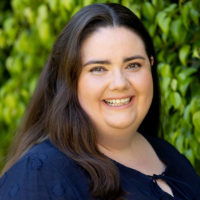Articles / Navigating developmental and behavioural concerns in primary school-aged children


writer
General Practitioner; Co-Director, Sydney Perinatal Doctors
Primary school aged children may present to the GP with developmental and behavioural concerns noticed in the classroom setting—and it can be stressful for both the child and their parents.
While parents may be distressed that their child is different, Dr Andrew Leech, a Western Australian GP with special interest in child development and mental health, reassures them that all children are unique.
“Be mindful that terms like delay, and even autism spectrum disorder and ADHD, may have negative connotations and stigma attached,” he says.
“I often just say everyone’s brain works differently, and we need to try and figure out how your brain is working so that we can help you to reach your full potential.”
“We do need to understand what is normal,” he says. “That’s actually a really tricky thing to establish because there is a wide range of normal.”
Dr Leech recommends having a developmental resource that you feel comfortable with, such as the one from the Raising Children Network.
“Some children who appear to be delayed might just need more time, and more reassurance,” Dr Leech says. But ensure appropriate follow-up where you suspect the chid is developing at the slow end, yet still within normal expectations—it’s important not to miss developmental delay because early intervention is so effective, he adds.
For Dr Leech, the assessment starts when he goes to the waiting room to call the patient in. “Watch the child with their parent or caregiver. How do they interact? What’s their relationship?” He takes note of eye contact, body language and how they sit (or not!) in his room.
“The first consultation should always be around connecting and building rapport with the patient,” says Dr Leech. Although the family is important, the patient is the child.
“I try to address the child first, but if there is something sensitive going on, or something beyond the language we can use with a child, we may need to organise separate conversations with mum or dad or a caregiver,” Dr Leech says.
A thorough history is important. Start from the beginning by asking about parental health pre-pregnancy, then pregnancy, delivery and the child’s early life experiences.
A standardised questionnaire, such as the Vanderbilt or SNAP 26 (both freely available online), is useful to provide a framework for history taking and offer diagnostic information within a subsequent specialist referral.
Dr Leech uses a detailed biopsychosocial approach to search for factors that may be causing or exacerbating apparent delays or behavioural issues.
He says he commonly orders blood tests “to make sure that we’re not missing a biological problem.” It is not uncommon to pick up significant thyroid problems, iron deficiency or coeliac disease.
Children with chronic conditions are more at risk of neurodevelopmental conditions, and some can be linked. For example, hypermobility may often overlap with ADHD.
Children who seem to be having developmental difficulties will need referral. “Set up a team of experts. You are part of that team, at the centre of that team,” says Dr Leech.
Many will need a paediatrician for formal diagnosis, but allied health such as occupational therapists and psychologists may be enlisted early to commence practical support.
“Have a strengths-based approach to your consultations,” Dr Leech says. The child’s strengths and interests will be helpful when it comes back to managing their difficulties. Dr Leech says every child will have something that “makes them buzz” – whether it’s their pet, an instrument, art, a sport or another special interest.
Asking the family to list the strengths and difficulties can help to prioritise which areas need help first.
The cost of assessment and support can add up, so Dr Leech recommends suggesting families engage with Centrelink and the NDIS. Before the age of 7, NDIS support does not require a formal diagnosis, just clear evidence of how the child’s development may benefit from support.
There are also charitable organisations and parent support groups that are often state-based.
“GPs underestimate the effect that they have on families, being able to just hold them, support them, reassure them, and help them navigate what is a very complicated system,” Dr Leech says.
Dr Andrew Leech will be presenting identifying neurodevelopmental concerns in children at Healthed’s free webcast on 3 October. Register here to attend.

Autism Spectrum Disorder – Managing Challenging Behaviours

Paediatric Allergic Rhinitis & Immunotherapy

Premature Ovarian Insufficiency – The New Guidelines

Alcohol Addiction Assessment and Advice

writer
General Practitioner; Co-Director, Sydney Perinatal Doctors


Increase
No change
Decrease
Listen to expert interviews.
Click to open in a new tab
Browse the latest articles from Healthed.
Once you confirm you’ve read this article you can complete a Patient Case Review to earn 0.5 hours CPD in the Reviewing Performance (RP) category.
Select ‘Confirm & learn‘ when you have read this article in its entirety and you will be taken to begin your Patient Case Review.
